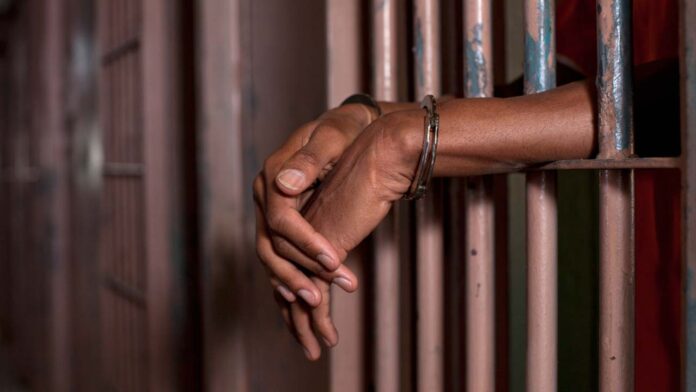Nigeria alone has 52% of 5,841 death row inmates
By Jeph Ajobaju, Chief Copy Editor
Nigeria has 3,036 prisoners on death row, 52 per cent of total 5,841 across Sub Saharan Africa (SSA), which reflects more of the poor justice administration in the country than its largest population of 206 million.
Kenya is next with 601 inmates, followed by Tanzania (480) South Sudan (334), Zambia (257), Cameroon (250), Mauritania (183), Ghana (165), and Uganda (135).
The figures come from the report of the annual review of global death penalty by Amnesty International as of 31 December 2021.
Other countries in Africa with prisoners awaiting execution include Sierra Leone (117), Sudan (95), Zimbabwe (66), Mali (48), Malawi (37), and Liberia (16).
Death sentence is legal in Nigeria and other African countries but executions are rare.
Amnesty International said even though Nigeria sentenced 56 people to death in 2021, there was no record of execution in the country. And that in the decade between 2007 and 2017, there were seven executions in Nigeria, the last in 2016.
Only three countries in Africa executed prisoners in 2021 – Somalia (21), South Sudan (9), and Botswana (3).
__________________________________________________________________
Related articles:
Amnesty says Abuja is killing IPOB members in droves. While Buhari pampers Fulani terrorists
EndSARS panel report exposes Buhari’s hand in massacre
ICC begins investigation of #EndSARS killings
_________________________________________________________________
Global data
Amnesty said there were 579 executions globally in 2021, a 20 per cent increase from 483 in 2020, but among historical-low totals, the second-lowest since 2010.
The number of known death sentences rose nearly 40 per cent (from at least 1,477 in 2020 to 2,052 in 2021), it added, per reporting by Premium Times.
These figures do not include the thousands of executions and death sentences Amnesty believed were carried out in China, the world’s lead executioner, Amnesty explained.
It added that secrecy in North Korea and Vietnam, as well as restricted access to information in several other countries, has impaired a full assessment of global trends.
“Secretive state practices and restricted access to information for these three countries made it impossible to accurately monitor executions, while for several other countries, recorded totals must be regarded as minimum figures as some of the world’s most prolific executioners returned to business as usual and courts were unshackled from Covid-19 restrictions,” the report said.
Iran accounted for the highest number of executions in 2021, at least 314 (up from at least 246 in 2020), its highest execution total since 2017.
Amnesty said this was due in part to a marked increase in drug-related executions – a flagrant violation of international law that prohibits the use of death penalty for crimes other than those involving intentional killing.
Saudi Arabia more than doubled its number of executions, a grim trend that continued in 2022 with the execution of 81 people in a single day in March.
“After the drop in their execution totals in 2020, Iran and Saudi Arabia once again ramped up their use of the death penalty last year, including by shamelessly violating prohibitions put in place under international human rights law.
“Their appetite for putting the executioner to work has also shown no sign of abating in the early months of 2022,” lamented Amnesty International Secretary General Agnès Callamard.
Somalia came behind Iran and Saudi Arabia with 21 executions, followed by Yemen (14), South Sudan (9), Japan (3), Belarus (1), and UAE (1).
State repression tool
Amnesty said the death penalty was deployed as an instrument of state repression against minorities and protestors in several countries in 2021, with governments showing an utter disregard for safeguards and restrictions established under international human rights law and standards.
“An alarming increase in the use of the death penalty under martial law was recorded in Myanmar, where the military transferred the authority to try civilian cases to military tribunals, which conducted summary proceedings without the right to appeal.
“Close to 90 people were arbitrarily sentenced to death, several in absentia, in what was widely perceived as a targeted campaign against protestors and journalists.”
Despite these alarming developments, it noted, positive signs of a global trend towards abolition of the death penalty continued throughout 2021.
“For the second consecutive year, the number of countries known to have executed people was the lowest since Amnesty International began keeping records.”
Callamard said a world without state-sanctioned killing is both imaginable and within reach and Amnesty will continue to fight for it.
“We will continue to expose the inherent arbitrariness, discrimination, and cruelty of this punishment until no one will be left under its shadow.
“It is high time the ultimate cruel, inhuman, and degrading punishment is consigned to the history books.”




